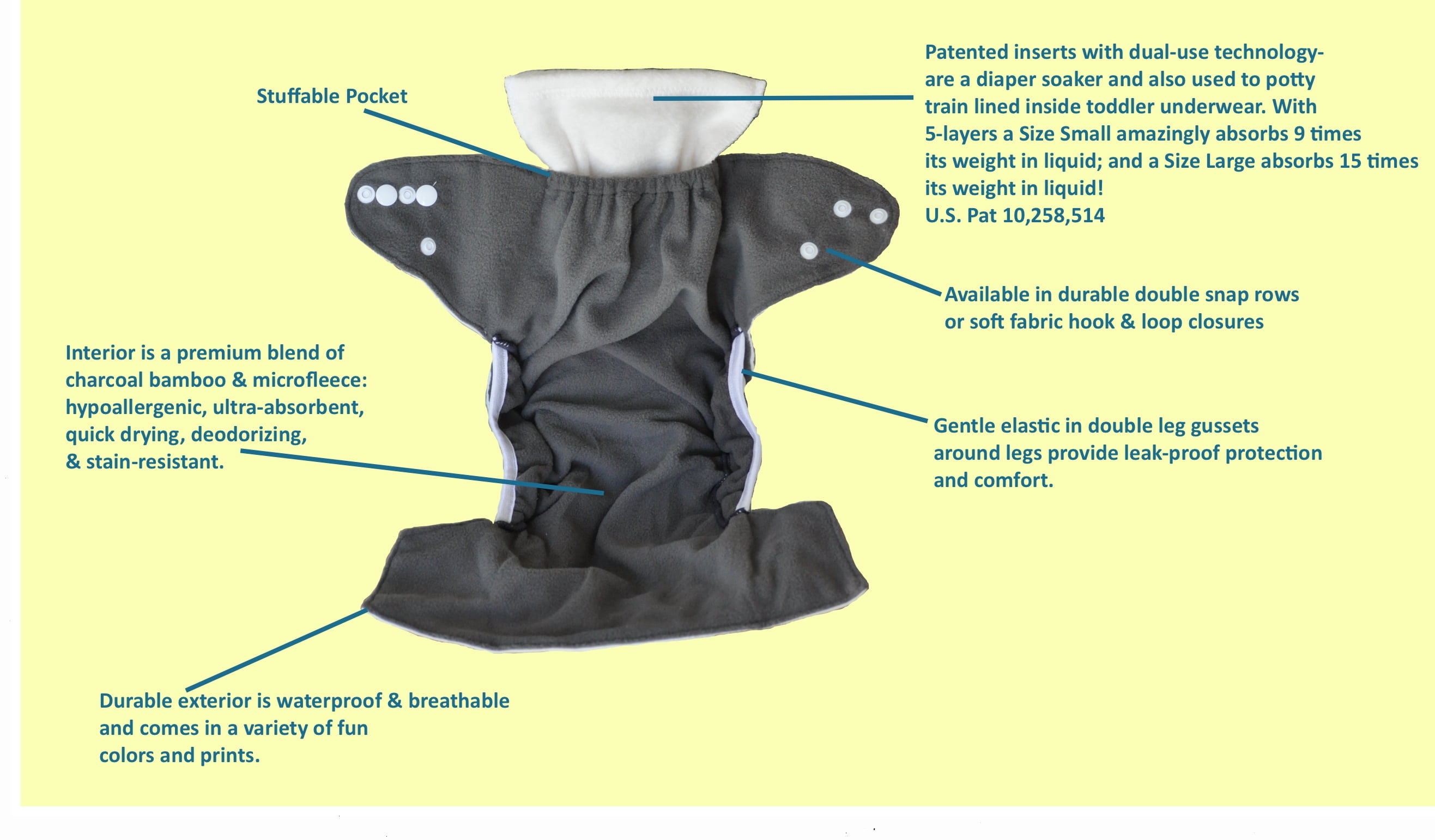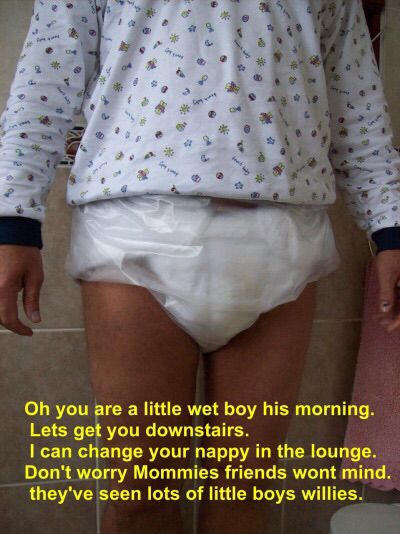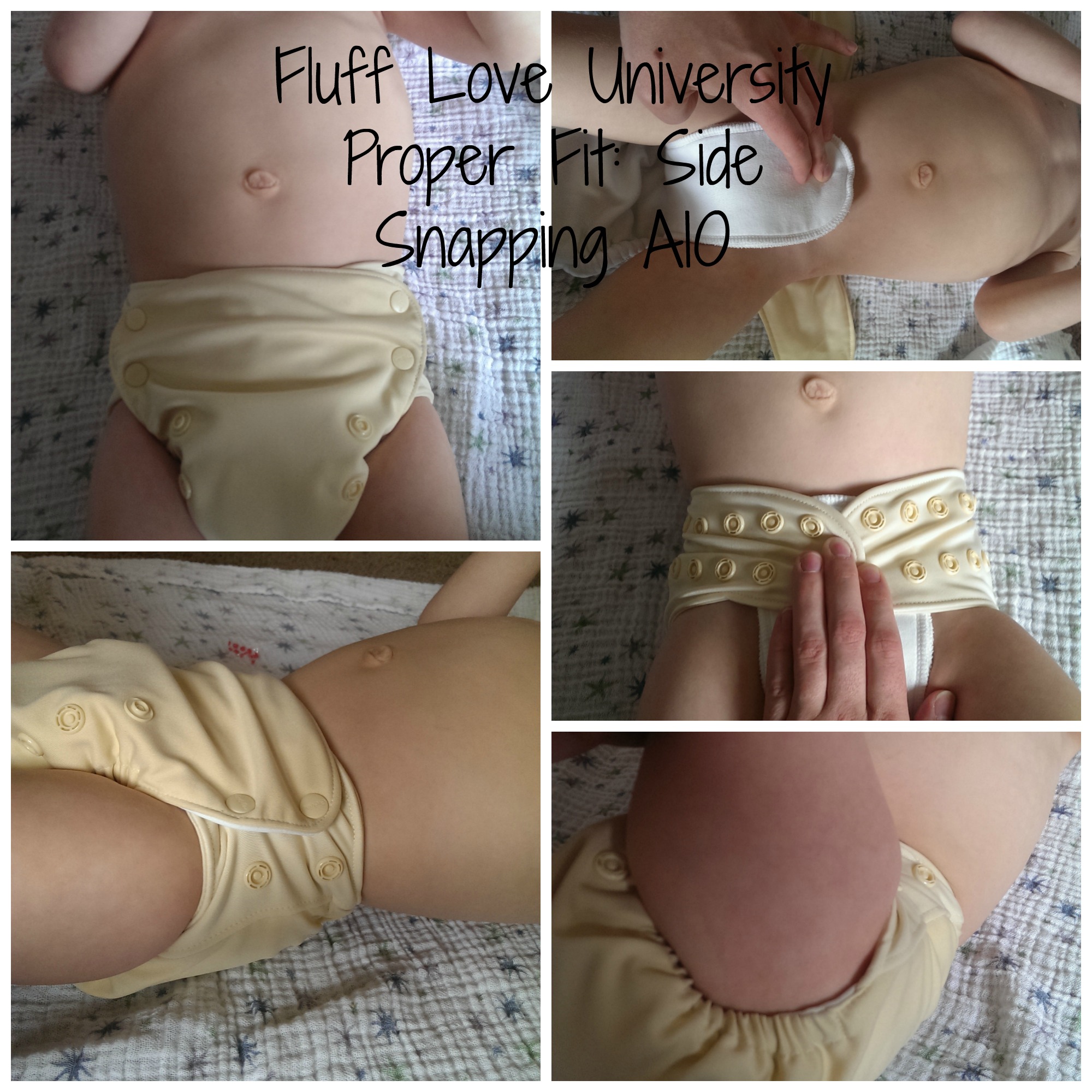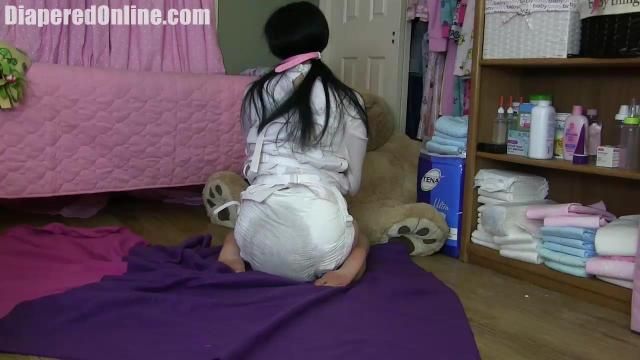
Are you a new parent considering cloth diapering? Or maybe you’re already a cloth diapering veteran looking to extend the life of your cloth diapers? Whatever your situation, finding the perfect balance between saving money and maintaining your sanity is essential when it comes to cloth diapers. In this article, we will share some tips and tricks about how to extend the life of your cloth diapers, ensuring that they last for the long haul.
First, let’s talk about the average lifespan of cloth diapers. Most cloth diapers can last anywhere from 2 to 3 years, depending on how frequently they are used and the types of fabrics they are made of. Some brands, like Kawaii’s pocket diapers, are known for their durability and can easily go above the average lifespan. On the other hand, diapers made from natural fibers like hemp and bamboo may degrade faster over time. However, with proper care and maintenance, you can extend the lifespan of all types of cloth diapers.
One common issue that cloth diaper owners face is the development of stains, especially when dealing with diaper rash or yeast infections. No worries, though! There’s a science to removing these stubborn stains. Pre-treating them with enzymes or using alternative bleaching methods can work wonders. Just be sure to follow the manufacturer’s instructions and use detergents that are safe for cloth diapers.
Another tip to extend the life of your cloth diapers is to wash them inside out. This helps prevent wear and tear on the fabric, especially along the seams and edges. Additionally, using gentle detergents that are free of harsh chemicals and additives will keep the fabrics soft and prevent them from becoming rough or losing their absorbency over time.
If you’re using cloth diapers with pockets, make sure to check the elastics regularly. Over time, elastic bands can stretch or lose their elasticity, leading to leaks and discomfort for your little one. Thankfully, most pocket diapers allow you to replace the elastics easily. Just follow the manufacturer’s instructions, and you’ll have your diapers as good as new!
In conclusion, cloth diapers can last for a long time if you take proper care of them. Investing in high-quality brands and knowing how to maintain them can save you money and reduce waste in the long run. So, don’t be surprised if your cloth diapers outlive even your highest expectations!
Contents
How Long Do Cloth Diapers Last?
When it comes to cloth diapers, there is no definite answer to the question of how long they will last. The lifespan of cloth diapers largely depends on a variety of factors, including the quality of the diapers, how they are cared for, and how often they are used.
On average, cloth diapers can last anywhere from one to four years. Some diapers may even last longer if they are well-maintained and properly cared for. However, it’s important to note that the lifespan of cloth diapers can vary greatly from one brand to another.
One factor that can greatly extend the life of cloth diapers is the use of diaper covers. Diaper covers provide an additional layer of protection and can help keep the diapers in better condition for a longer period of time. Additionally, using cloth diaper inserts can also extend their lifespan, as they tend to wear out faster than the diapers themselves.
Another factor that affects the lifespan of cloth diapers is how they are washed. It is recommended to follow the manufacturer’s instructions for washing and drying cloth diapers. Using harsh detergents or washing them on high heat can cause the diapers to deteriorate faster. Hanging them to dry or tumble drying on a low heat setting can help preserve their quality.
Although it may be tempting to purchase cheaper cloth diapers, it’s important to consider their quality and durability. While some cheaper brands may offer a lower upfront cost, they may also have a shorter lifespan and require more frequent replacement. Investing in higher-quality cloth diapers from reputable brands can save you money in the long run.
In general, cloth diapers that are well taken care of and used properly can last through multiple children. Many cloth diaper owners report that their diapers are still in good condition even after several years of use. However, it’s worth noting that cloth diapers will eventually wear out or become damaged, especially with heavy use.
So, while it’s impossible to give an exact lifespan for cloth diapers, with proper care and maintenance, they can last for a significant span of time. Remember to follow proper washing instructions, use diaper covers and inserts as necessary, and invest in high-quality diapers to ensure that they withstand the test of time.
In conclusion, the overall lifespan of cloth diapers largely depends on the type of diaper and how they are cared for. Although some diapers may wear out sooner than others, with proper care, most cloth diapers can last for several years. So, take good care of your cloth diapers, and they will thank you by keeping your baby dry, comfortable, and cute!
Understanding the Lifespan of Cloth Diapers
When it comes to cloth diapers, understanding their lifespan is key in order to get the most out of them. Cloth diapers, unlike disposable ones, can be used for a longer period of time, but their lifespan will vary depending on several factors.
Talk about Wetting
One factor that affects the lifespan of cloth diapers is the wetting frequency. If you have a heavy wetter, your diapers may wear out faster compared to those with lighter wetters. Additionally, the type of fabrics used in the diapers can also impact their longevity.
Types of Cloth Diapers
There are different types of cloth diapers available in the market, such as all-in-one diapers, pocket diapers, fitted diapers, and prefolds. Each type has its own lifespan, and it’s important to understand the specific care instructions for the type of diaper you have.
For example, all-in-one diapers have a longer lifespan compared to fitted diapers. On the other hand, prefolds can last even longer if they are well-maintained. Pocket diapers, which have a built-in pocket to hold the absorbent insert, are also known to last a long time if properly cared for.
Washing and Drying
Proper washing and drying techniques can significantly extend the lifespan of cloth diapers. Using mild detergent and avoiding fabric softeners are crucial in maintaining the absorbency and overall quality of the diapers.
When it comes to drying, air drying is a popular choice as it is gentle on the fabrics and prevents damage caused by high heat. However, if you prefer using a dryer, make sure to use a low setting to avoid shrinkage and damage to the waterproof layers.
Elastics and Snaps
Over time, the elastics and snaps on cloth diapers may lose their stretch and functionality. This is normal wear and tear, and in some cases, these components can be replaced to extend the lifespan of the diaper.
Knowing When to Replace
Despite the best care, cloth diapers will eventually wear out and need to be replaced. Signs of wear include thinning fabric, rough textures, and weakened elastics. If you notice leaks or other problems that cannot be fixed, it may be time to invest in new diapers.
Overall, cloth diapers can last anywhere from one to four years, depending on the type, care, and frequency of use. By understanding their lifespan and taking proper care of them, you can ensure that your cloth diapers last longer and save money in the long run.
Factors That Affect the Durability of Cloth Diapers

When it comes to cloth diapers, durability is a key factor to consider. After all, no one wants to invest in a product that doesn’t last long. So, what are the factors that can affect the longevity of cloth diapers?
Quality of Materials
The quality of materials used in cloth diapers plays a significant role in their durability. Higher-quality fabrics and materials are more likely to withstand the rigors of washing and use without wearing out quickly. When choosing cloth diapers, it’s essential to look for brands that use high-quality, absorbent fabrics that are built to last.
Proper Care and Washing
How you care for and wash your cloth diapers can also impact their lifespan. Following the manufacturer’s washing instructions is crucial to maintain the integrity of the diapers. Using the right detergent, avoiding bleach or fabric softeners, and proper drying techniques can help prolong the life of your cloth diapers.
Frequency of Use
The more often you use cloth diapers, the faster they tend to wear out. If you use cloth diapers full-time, they will naturally experience more wear and tear. However, this doesn’t mean you should shy away from using cloth diapers. With proper care and maintenance, even highly used cloth diapers can last for several years.
Size and Fit
As your child grows, the size and fit of the cloth diapers become essential. Using diapers that are too small or too big for your child can lead to discomfort and leaks, as well as reduced durability. It’s crucial to select the appropriate size of diapers that provide a snug and comfortable fit to ensure longevity.
Number of Diapers in Rotation
The more cloth diapers you have in rotation, the less each individual diaper gets used, which helps extend their overall lifespan. Having a sufficient number of diapers allows them to be used less frequently and eases the wear and tear on each diaper.
Usage after Potty Training

While cloth diapers are primarily associated with infants and toddlers, they can also be used for potty training older children. However, the frequency of use and the nature of accidents in these diapers may be different. Proper care and maintenance are still necessary to ensure their durability.
In conclusion, several factors can affect the durability of cloth diapers. By considering the quality of materials, following proper care instructions, using the diapers correctly, and having a sufficient number of diapers in rotation, you can ensure that your cloth diapers last longer and provide the best value for your investment.
Tips to Extend the Life of Cloth Diapers

When it comes to cloth diapers, the longer they last, the better. With some care and maintenance, you can significantly extend the lifespan of your cloth diapers, making them a wise investment for your baby’s diapering needs. Here are some tips to help you make your cloth diapers last longer:
1. Choose durable cloth diapers: When selecting cloth diapers, opt for ones that are made from high-quality materials and have a reputation for being long-lasting. Some cloth diaper manufacturers even offer warranties, giving you peace of mind that your investment is protected.
2. Follow the manufacturer’s care instructions: Each cloth diaper brand may have specific care instructions. Make sure to carefully read and follow these instructions to ensure you are caring for your cloth diapers properly. This will help prevent any premature wear and tear.
3. Avoid drying diapers in direct sunlight: Although line drying cloth diapers can help remove stains naturally, prolonged exposure to direct sunlight can degrade the fabric and elasticity of your cloth diapers. Instead, opt for indoor drying or shaded areas.
4. Use multiple cloth diapers: Having a sufficient number of cloth diapers in your rotation will allow each diaper to be worn less frequently. This helps to distribute the wear and tear across multiple diapers, prolonging their lifespan.
5. Consider the diaper’s design: Different cloth diaper styles have different levels of durability. For example, fitted diapers tend to be more durable than all-in-one diapers. Choose the type of cloth diaper that best suits your needs and preferences while also considering its durability.
6. Treat stains promptly: Stains can be challenging to remove if left untreated for too long. As soon as possible, rinse or wash soiled cloth diapers to prevent stains from setting in. This will help keep your diapers looking clean and fresh for longer.
7. Use diaper-safe detergent: Not all detergents are suitable for washing cloth diapers. Look for detergents that are free from additives and fragrances, as these can cause buildup and affect the absorbency of your diapers.
8. Inspect and repair when needed: Regularly check your cloth diapers for any signs of wear and tear, such as loose elastics or cracking PUL (polyurethane laminate) layers. Promptly address any issues to prevent further damage and protect the longevity of your diapers.
9. Consider using diaper liners: Diaper liners can help protect the inside of your cloth diapers from staining and make cleanup easier. They act as a barrier between your baby’s waste and the diaper itself.
10. Store diapers properly: If you need to store your cloth diapers for an extended period, make sure they are clean and completely dry before packing them away. Store them in a cool and dry place to prevent any mold or mildew growth.
By following these tips, you can increase the lifespan of your cloth diapers, saving money and reducing waste in the long run. Remember, proper care and maintenance are key to extending the life of any cloth diaper!
One-Sized Diapers Are Highly Undervalued
When it comes to cloth diapering, one-sized diapers are highly undervalued. These diapers are designed to fit babies as they grow from infancy to toddlerhood, eliminating the need for constant replacements.
Many parents are amazed by how long one-sized diapers can last. Some have reported using the same set of diapers for multiple years, finding that their condition remains excellent and that they still perform well. The key to their longevity is that they are made with high-quality materials that can withstand the wear-and-tear of everyday use.
One-sized diapers, like Kawaiis, have a longer lifespan than other types of cloth diapers. Because of their adjustable features, they can easily accommodate your growing baby. They are also made with durable fabrics that hold up well over time.
Drying and taking care of your one-sized diapers can also increase their overall life expectancy. It is recommended to dry them in a natural way, such as line drying or using a drying rack. This helps to avoid excessive heat and wear from the dryer, which can cause the diaper materials to degrade.
In addition to their longer lifespan, one-sized diapers also offer a higher resale value. Many parents opt to sell their used cloth diapers once their child has outgrown them, and one-sized diapers tend to maintain their quality and functionality better than other brands. So, even if the initial investment may be higher, you can recoup some of the cost by selling them later on.
One advantage of one-sized diapers is that they can be used for multiple children. You can pass them down from one child to another, saving money in the long run. This is especially beneficial if you plan on having multiple children or if you have friends or family members who may be interested in using cloth diapers as well.
It’s important to note that one-sized diapers are not indestructible. Over time, they may start to show signs of wear, such as fading or fraying. However, with proper care, they can still remain functional for years.
When it comes to cleaning and maintaining one-sized diapers, the process is relatively simple. Rinse off any solid waste before washing them, and then follow the manufacturer’s instructions for cleaning. Many cloth diaper brands offer specific guidelines for washing and care.
It’s also important to note that while one-sized diapers can last for years, their lifespan can be affected by certain factors. For example, if you regularly bleach your diapers, it can weaken the fabric and decrease their overall lifespan. Similarly, exposing them to extreme temperatures or harsh chemicals can also cause premature degradation.
Overall, one-sized diapers are a safe and cost-effective option for cloth diapering. They offer a longer lifespan, higher resale value, and are more convenient due to their adjustable features. So, if you’re considering cloth diapering, don’t underestimate the value of one-sized diapers. They can keep your baby dry and comfortable for years to come.
Benefits of Using One-Sized Cloth Diapers
Using one-sized cloth diapers offers several advantages that make them a popular choice for parents. Whether you’re just starting your cloth diapering journey or have been using them for a while, one-sized diapers can be a great investment. Here are some benefits:
Cost Savings:
One-sized cloth diapers can save you a significant amount of money in the long run. Unlike traditional disposable diapers, which need to be constantly replaced as your baby grows, one-sized diapers are adjustable and can be used from birth until your child is potty trained. This means you can buy diapers once and use them throughout your baby’s entire diapering stage.
Durability:
One-sized cloth diapers are designed to withstand the rigors of daily use. They are made with durable fabrics and reinforced stitching to ensure that they last for years, even with frequent washing. This durability makes them a cost-effective choice.
Adjustable Fit:
One-sized diapers come with adjustable snaps or Velcro closures that allow you to customize the fit for your baby. This means you don’t have to constantly buy new diapers as your baby grows. With a few simple adjustments, the same diaper can be used from the newborn stage all the way through toddlerhood.
Health Benefits:
Cloth diapers are a healthier option compared to disposable diapers, as they do not contain harmful chemicals or artificial fragrances. They are also more breathable, reducing the risk of diaper rash and other skin problems. The fabrics used in cloth diapers are often natural and organic, making them safe for your baby’s delicate skin.
Environmental Friendliness:
One-sized cloth diapers are an eco-friendly choice, as they can be reused multiple times. Disposable diapers take hundreds of years to decompose in landfills, contributing to pollution and waste. By using cloth diapers, you can significantly reduce your environmental impact and help create a greener future for your child.
Ease of Use:
One-sized cloth diapers are just as easy to use as disposable diapers. They come with different features and styles, such as pockets or fitted diapers, along with inserts that can be customized for absorbency. Cleaning them is a simple process – just rinse off any solids and toss them in the washing machine with detergent. Adding vinegar or other boosters can further enhance their cleaning power and remove any odors.
Longevity:
One-sized cloth diapers have a longer lifespan compared to other diaper options. While the exact life expectancy varies depending on the brand and how well you care for them, one-sized diapers can usually last through multiple children, extending their overall usefulness. Some manufacturers even offer warranties or replacement policies, ensuring that you can get the most out of your investment.
In conclusion, one-sized cloth diapers have many benefits that make them a preferred choice for parents. They offer cost savings, durability, adjustable fit, health benefits, environmental friendliness, ease of use, and longevity. By choosing one-sized diapers, you can be confident that you are making a good investment for your baby and the planet.
